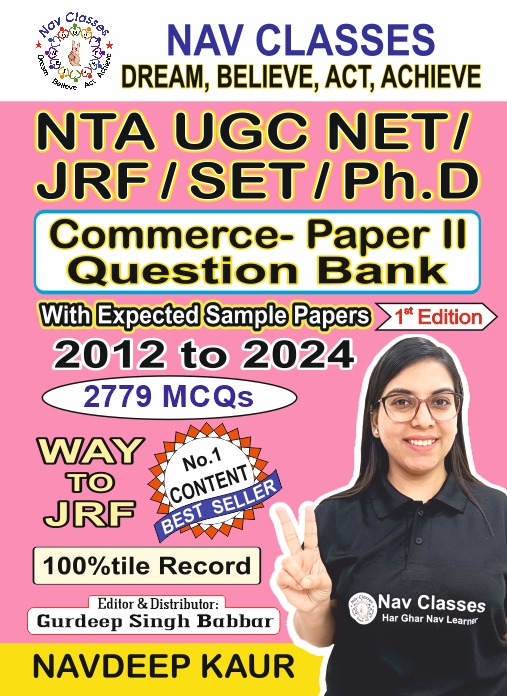Terminology of Financial Accounting
Event: It a process or part of process that occurs at a particular moment and has a definite place of occurrence. Events are the cause of external transactions.
- Transaction: It refers to any act of the business that changes the financial position of the business unit.
- Debit: It is the aspect of a financial transaction where we receive benefit.
- Credit: It is the aspect of a financial transaction where we give benefit.
- Entry: It is the process where we record the transaction in the books of accounts.
- Assets: Anything of value owned by a business is known as asset.
- Liability: Anything owed, a debt, a claim of an outsider against the business is called a liability.
- Accounts: An account is a summarised record and systematic arrangement of transactions for a period affecting a person, entity, expense, income, asset and liability.
- Turnover: The total sales during a period, cash sales as well credit sales is called turnover.
- Business: Any work, which is legal and done with the intention of earning profit, is called business.
- Capital: Capital represents the amount of funds invested by the owner in the business. It may be in the form of cash, goods or any other asset. Capital is always equal to the difference between total assets and liabilities.
| Trick to remember Indian Accounting Standards | |
| Ind AS Tricks: Part 2 |
Accounting Documents
- Official receipts: These receipts are received whenever any payment is made over the counter to the cashier
- Cash bills: These are seldom available now. However, purchase of goods are made from a shop that has no cash register, normally these bills are received as proof of payments
- Bills: These documents are received when payment is to be made by a specified date. As for illustration: electricity, water, quit rent and assessment services
- Invoices: These documents are issued when physical goods are purchased. It functions same as bills and the recipients have to pay dues within the dates mentioned
- Delivery Orders: this refers to the quantity of goods that has been ordered. The order concerns the quantity and description of the goods that are ordered and is different from invoice
These are the two documents that are received while purchasing goods or services. These documents are also issued to the clients during sale transactions. Purchase invoice and Supplier invoice are documents that clients receive. The company that supplies the goods prepares the Sales invoice.
- Purchase Orders: To place orders as per specifications and quantity through proper documentation is called Purchase Order
- Clients Orders: Ordering goods meant for the clients is called Clients‟ orders
- Credit Notes: These are documents issued to clients mentioning the credits incurred by the client, the reason for crediting from the account is also mentioned
- Debit Notes: These are documents issued to clients mentioning the debits incurred by the client, the reason for debiting from the account is also mentioned
- Payment Vouchers: Is a record of payments made, maintained in a chronological manner Petty Cash Vouchers: Is a record of payments made, maintained in a chronological manner in daily cash transactions
- Goods Received Notes: Is a record of receipts of goods purchased. A logbook is maintained regarding goods received
- Stock Cards and Stock Ledger: Physical movement of stocks is maintained through Stock Cards and Stock Ledger. They are maintained by storekeepers. Quantities of stocks, stock codes and description of stocks are made. Here unit price is not mentioned. Updating according to stock in and stock out is done. Some business houses maintain stock ledger in addition to stock cards
Accountant’s Responsibility
The primary responsibility of the accountant is to present the financial nformation to the owners at the end of financial year. The role and responsibility is multifold due to the introduction and practice of cost accounting, management accounting and financial management. Thus the expectation from the accountant in present era is very high.
The modern function of accounting has grown enormously and they can be grouped under the following broad categories:
1 Finance function
2 Control function
3 Planning function
1 Finance Function
Finance is the major requirement in front of any business and many of the business also face the problem of raising and using funds. A finance accountant‟s major responsibility is to ensure:-
1. Obtaining hassle free funds at low cost
2. To make maximum use of funds and derive maximum benefit
Accounting Conventions
An accounting convention refers to those common practices, which have been universally accepted and adopted. These are the practices followed while recording and presenting accounting information of the business entity. They are followed just like any customs and traditions which are followed by all the persons living in a society. These have been evolved through the regular and consistent practice over the years to aid unvarying recording in the books of accounts. Accounting conventions facilitate in introducing a uniform practice and thus helps in comparing accounting data of different business units or of the same unit for different periods. These have been developed over the years.
- Convention of Relevance: As per this convention only such information should be made available to its users which is relevant and helpful for achieving its objectives. The relevance of the item to be recorded depends on its nature and the amount involved. The nature of this information is such which influences the decision of its user. This is also known as convention of materiality. For example the business is interested in knowing what the total labor cost is and not how much employees spend and what they save.
- Convention of Objectivity: According to this the accounting information should be measured and expressed by the standards which have been universally accepted. As for example, if any unsold stock of goods is left at the end of the year then it should be valued at cost price or market price whichever less is.
- Convention of Feasibility: According to this convention the time, labor and cost of analysing accounting information should always be compared with the benefit arising from it. As for example, the cost of „oiling and greasing‟ the machinery is so small that its break–up per unit produced will be meaningless and will result in wastage of time ,labor and money.
- Convention of consistency: As per this convention we should always follow i.e. every year the same accounting principles, rules and methods while preparing our financial statements This can be made possible only when accounting policies and practices followed by all the enterprises are same and consistent over a period. If different accounting procedures and practices are used for preparing financial statements every year then the comparison of financial statements among the various years will become very tough and comparison won‟t be possible and thus it would become really very tough to take decision on the basis of these financial statements. As for example, while charging depreciation on fixed assets once a particular method is used it should be followed year after year so that the financial statements can be analyzed and compared.
- Convention of full disclosure: As per this convention all the material and relevant information and facts relating the financial statements should be fully disclosed. Here full disclosure means that there should be complete, and reasonable disclosure of accounting information .i.e. there should be complete and detailed presentation of information.
- Convention of Conservatism: As per this convention the profit and income should never be overstated or overestimated. But on the other hand business should consider or anticipate all or any future loss which may arise; provision should always be made regarding that loss is made in the books of accounts for the same, as for example the closing stock is valued at cost price or market price, whichever is lower.







One Response
Viagra For Sale Overnight [url=https://viacialisns.com/#]cialis prescription online[/url] Cytotec5mg cialis online pharmacy Viagra Vente Pharmacie